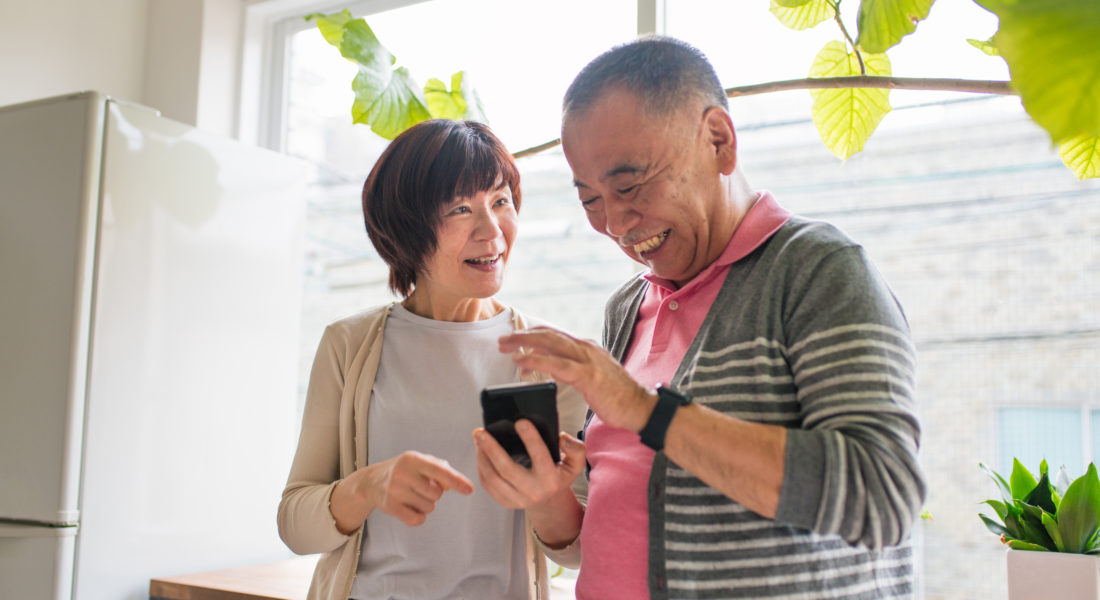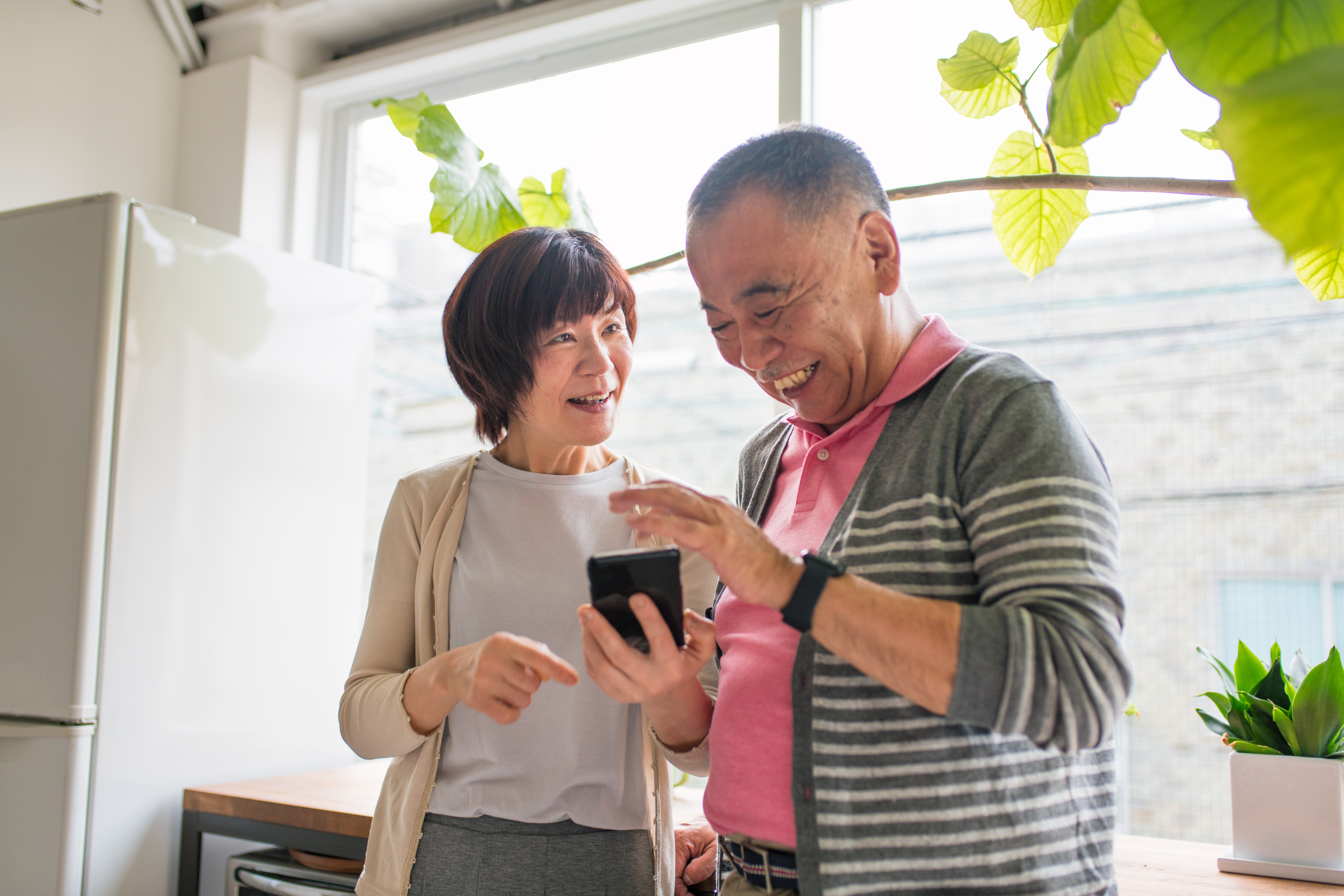 Dr. Vivek H. Murthy, former U.S. Surgeon General and frequent writer on the topic of loneliness, recently stated: “The brunt of COVID-19 will be borne by the poor, elderly, and sick, and it is up to us to ensure that they are not left behind.” 1 Seniors were already experiencing loneliness and social isolation at a greater rate than the overall population, so they have been profoundly affected by the pandemic. In this blog article, we share some insights on this vulnerable population and how we can keep seniors connected and engaged.
Dr. Vivek H. Murthy, former U.S. Surgeon General and frequent writer on the topic of loneliness, recently stated: “The brunt of COVID-19 will be borne by the poor, elderly, and sick, and it is up to us to ensure that they are not left behind.” 1 Seniors were already experiencing loneliness and social isolation at a greater rate than the overall population, so they have been profoundly affected by the pandemic. In this blog article, we share some insights on this vulnerable population and how we can keep seniors connected and engaged.
Why is combating senior loneliness so critical right now?
In a previous blog, we discussed how the “social determinants of health” – for example, whether a senior has access to nutritious food, reliable transportation, or healthy social connections – play an enormous role in seniors’ overall health and well-being.
When the coronavirus hit, many seniors suddenly lost those social connections that are so vital. Church services were suspended, they could no longer run errands, and relatives stopped visiting out of an abundance of caution. Seniors who live alone, which is about 27% of older Americans, 2 were especially hard-hit by social distancing requirements. And, sadly, many are likely learning of the passing of friends with no way to say goodbye or properly mourn at a funeral.
We know that loss of social connections, in addition to causing depression and other mental health issues, can affect physical health. Left unchecked, loneliness can exacerbate heart disease, diabetes, and high blood pressure—conditions many seniors are already trying to manage.
And, of course, older Americans are at a higher risk for contracting the coronavirus, which can cause stress and anxiety to skyrocket. With nothing else to do, they are also likely consuming a ton of television news, which doesn’t help matters.
So, what can we do to help (or encourage seniors to do for themselves)?
- Schedule a daily phone call. Whether a senior has a landline or a cell phone, a quick 5-minute daily check-in can boost spirits and provide regular updates for caregivers on their loved ones’ physical and emotional health. I have our kids FaceTime their grandparents on a regular basis and they absolutely love it.
- Make good use of technology. Just as younger adults are adapting to working remotely, seniors can also “do” many of the activities that used to bring them joy. From streaming religious services to virtual museum tours to fitness classes—scores of organizations have transitioned online to keep seniors engaged. Seniors are much more tech-savvy than we give them credit for, so simply providing links to these key resources can get them started.
- Solicit the help of children. Can a young child read to an older family member via FaceTime or over the phone? This could be the bright spot in a senior’s day—and also give a parent time to get something else done. Mailing cards, letters, and drawings to the senior could also spark happiness. Of course, remind them to practice the appropriate sanitizing approaches when getting the mail. My mother-in-law follows my kids on Facebook and loves seeing all the updates.
- Be a good neighbor. If you have a senior on your street or in your building, make sure he or she has your phone number in case of emergency. An AARP article also mentions having the senior give your number to their out-of-town children for extra peace of mind. 3 Leaving a meal or dessert on a doorstep is also a nice gesture.
- Develop a plan of care. To ease anxiety, have a discussion with seniors about what will happen if they become ill. Whom should they call? At what point should they call emergency medical services? Also make sure that any necessary health plan info – e.g., Medicare or Medicare Advantage card – is readily accessible.
- Point seniors to reliable sources of information. Unfortunately, there is a lot of misinformation circulating, so remind seniors to get information from trusted sources like the Centers for Disease Control (CDC) and Medicare.gov. On the Medicare website, seniors can sign up for a regular email containing COVID-19 information by state. They can also check the Medicare Facebook page for up-to-date info.
Support for seniors on WebMD ONE.
For health plans whose Medicare Advantage populations use the WebMD ONE platform, we encourage you to remind them of all the resources they can continue to take advantage of during this time:
- Balanced Living Plan—help for fall prevention, sleep quality, social connectedness, and cognition.
- Text-based condition management coaching programs—in addition to help with specific chronic conditions, the service also features medication reminders.
- Telephonic coaching—coaches are still available via phone, which could provide a much-needed point of social interaction.
Researchers have found that altruistic emotions, the so-called “helper’s high,” can lower stress and improve immunity. 4 So, during this time when everyone is experiencing greater loneliness and isolation, reaching out to our most vulnerable seniors could be a win-win for all of us.
Related Content:
- Blog: WebMD ONE Senior: A well-Being Solution for Today’s Seniors
- Blog: Tips For Handling Coronavirus in the Workplace
- Blog: It’s Never Too late to Promote Healthy Aging


